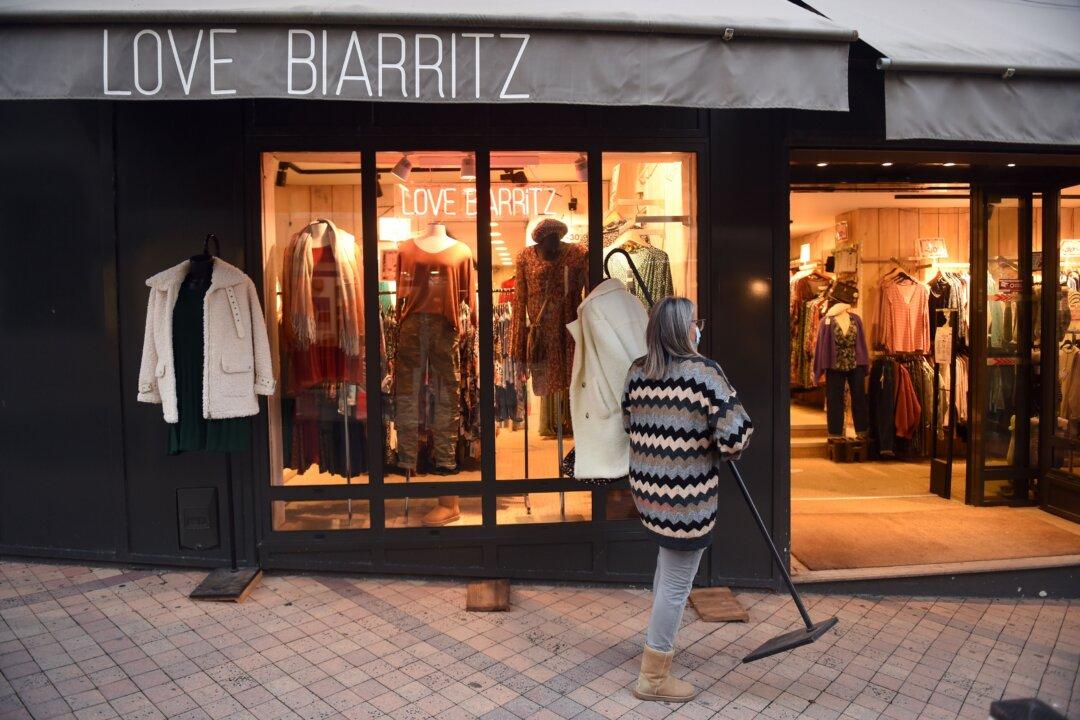
A shopkeeper closes her store, in Biarritz, southwestern France, on Jan. 16, 2021. Gaizka Iroz/AFP via Getty Images
|Updated:

PARIS—Cities, towns, and villages across France were practically empty on Saturday as residents stayed home and businesses shut to observe a nationwide curfew intended to help stem the spread of coronavirus, especially a more infectious variant.